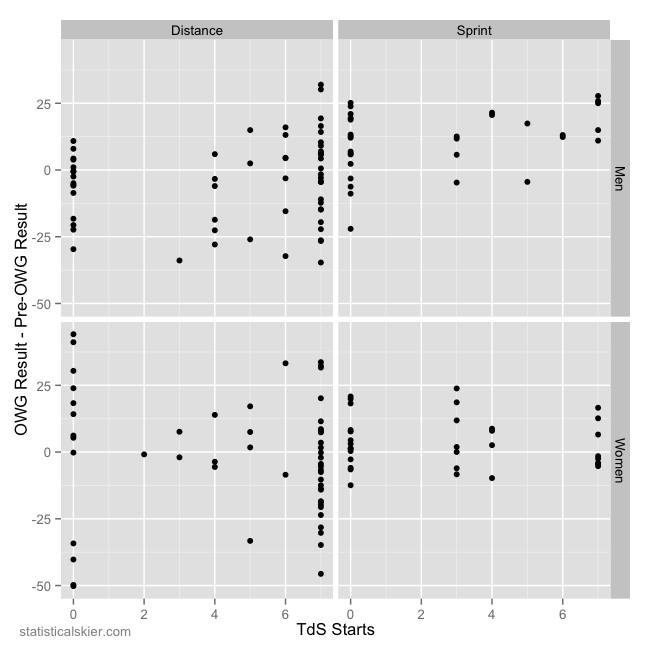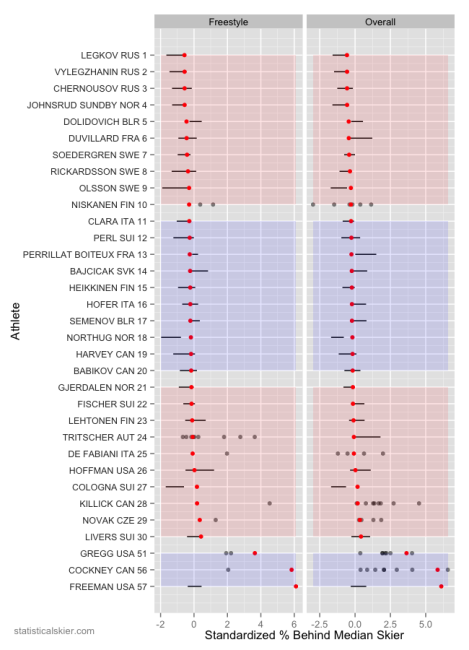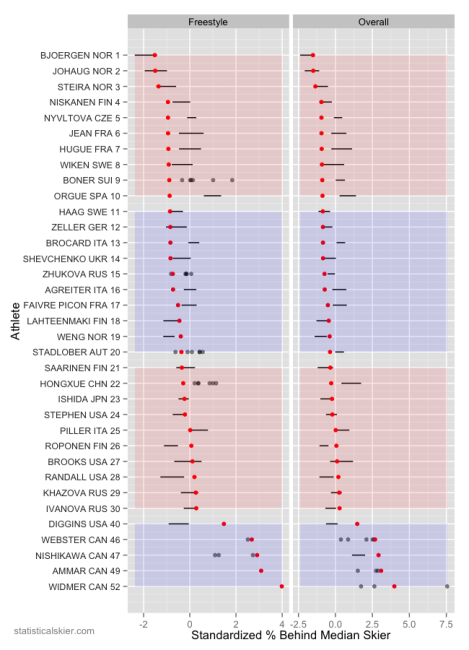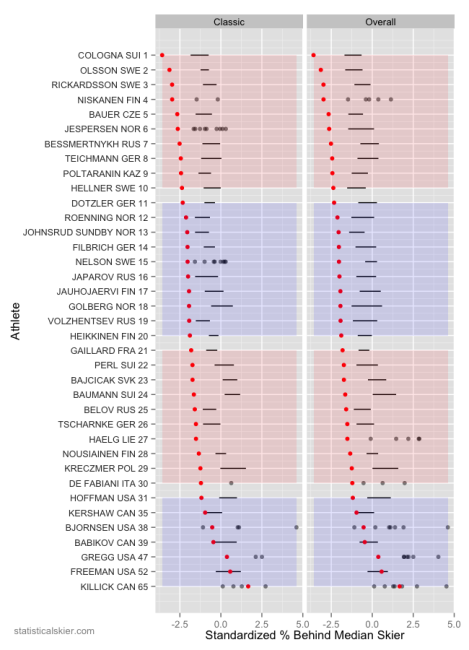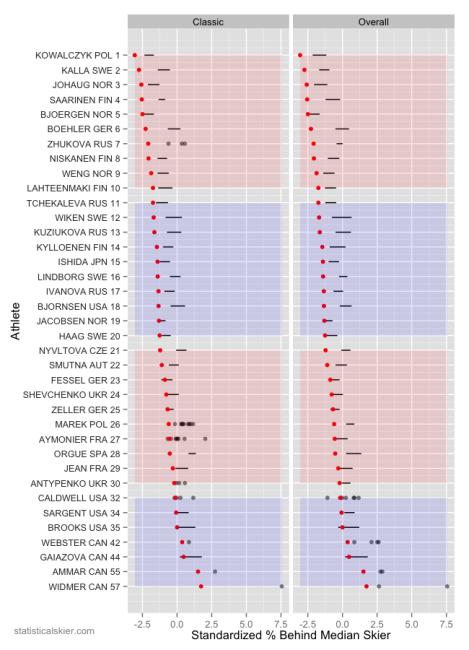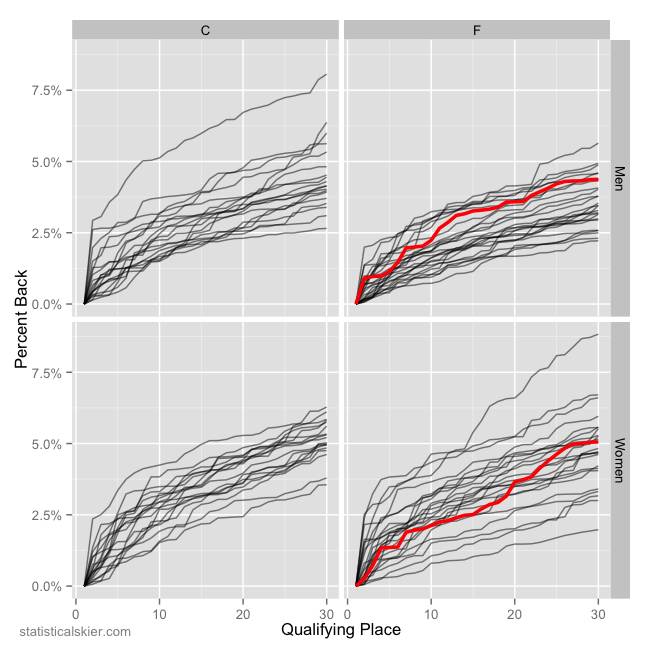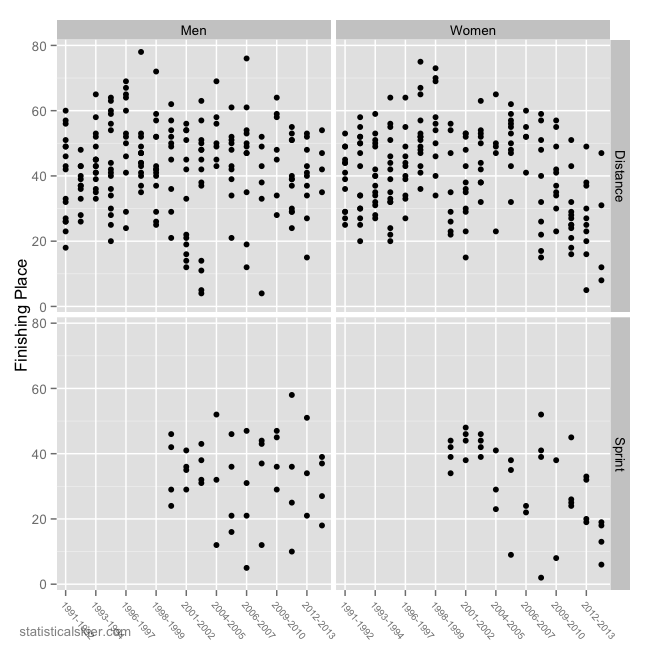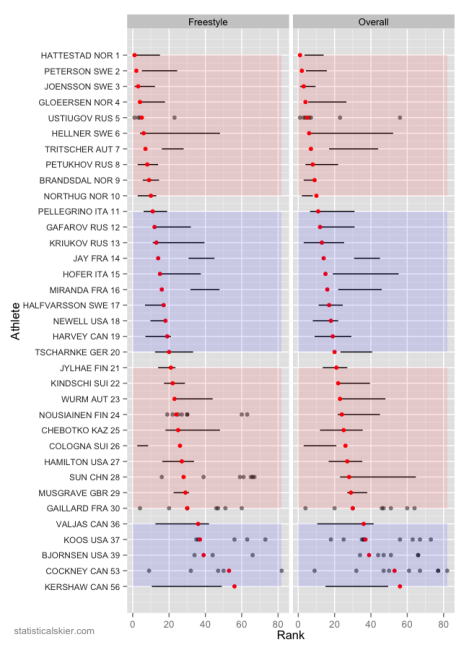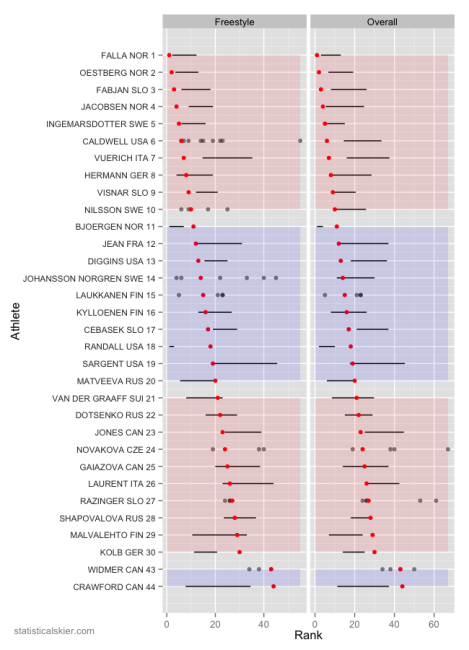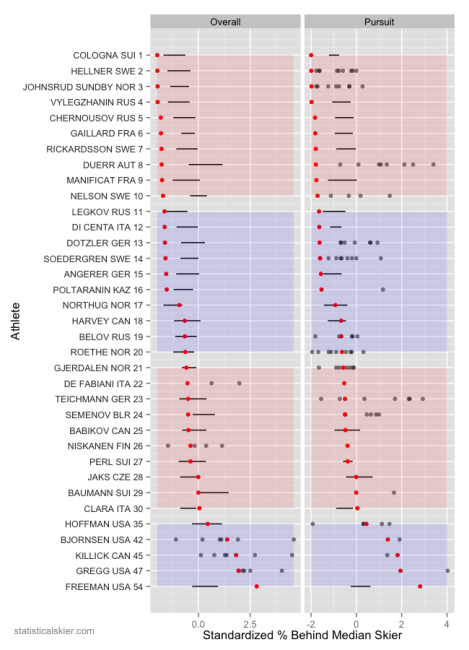Effect of TdS on Olympic Results
Multiple people emailed me asking about whether there was any potential link between whether an athlete participated in the Tour de Ski and their performance at the Sochi Olympics.
Personally, I like dealing with questions like this because they are a great example of how something can both be poor statistical reasoning, but still true at the same time. What could I mean by that?
Well, all of the emails I received made some attempt to list people on both sides: those who skipped the TdS (entirely, or in part) and then seemed to ski well at the Olympics, and those who skied the whole Tour but then seemed not to ski so well at Sochi.
The problem with this sort of thinking is that you have to stop and ask “skied well (or badly) relative to what?”. And that is devilishly hard to establish. For instance, Marit Bjoergen skipped much of the Tour, and then she won 2 gold medals.
But of course, we don’t really know how Bjoergen might have skied in Sochi had she finished the Tour. That would require time travel, or Dr. Who style alternate universes or something. Imagine an alternate universe in which she finished the Tour, and then got the exact same results, under the exact same scenarios, at Sochi. Ask yourself if you’d react to that universe with shock and surprise that Bjoergen skied well enough to win two gold medals (and two bad results from a crash and bad wax) at Sochi after doing the Tour in January. No? I thought not.
So with all my statistical hand waving out of the way up front, here’s a crude way to look at this, as best we can. I took all the top 30 finishers in the individual races at Sochi and collected all their results from 2012-2013 forward. I calculated the difference in the average performance of each skier at Sochi and prior to Sochi (measured by looking at the difference in rank or FIS points compared to each of the skiers in the cohort), and then plotted that relative to the number of stages they started at the Tour de Ski:
Due to the somewhat unfortunate repeated collapsing and then subtracting, negative values here represent doing better at Sochi against this specific cohort of skiers than they had in the previous year and half or so. So if more starts at the Tour had an overall negative effect on performance, you’d see things trending generally upward. But mostly people are just all over the map.
But the key here is that just because we have no evidence of an overall effect, for the whole population on average, that in no way means that specific people weren’t adversely affected by racing deep into the Tour. That’s the key: it’s almost certainly true that some people may have benefited from skipping the Tour, and some people suffered by doing the Tour. But that’s not the same thing as some sort of general, over-arching effect across all people.
I skipped adding any trend lines, because really, the story here is the variation. Sure, you might be able to convince yourself that there’s an effect present for the male sprinters.
Tagged Analysis, olympics, sochi, tour de ski